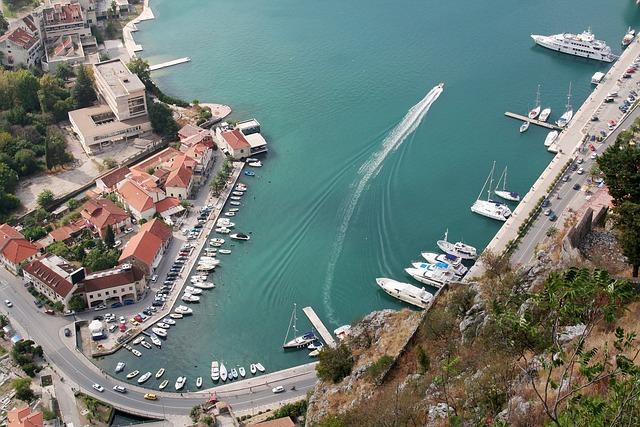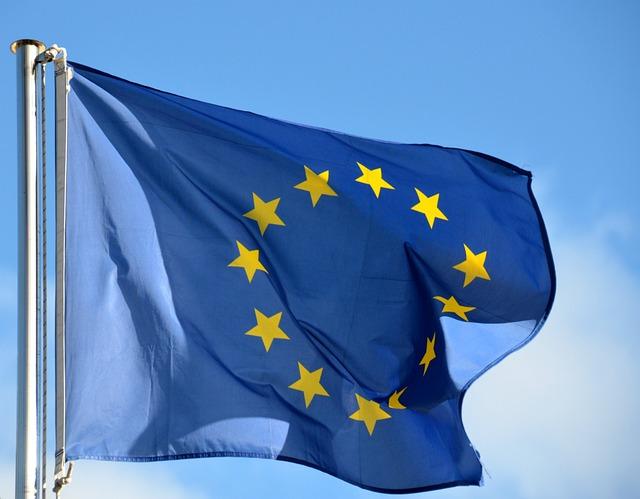The Historic Context of Authoritarian affect in the Western Balkans
The legacy of authoritarianism within the Western Balkans is deeply entrenched, formed by a tumultuous historical past of political upheaval and battle that adopted the breakup of Yugoslavia within the Nineties. On this context, numerous exterior and inside forces have exerted affect over the area, usually leveraging political instability and financial uncertainty to ascertain regimes that promote autocratic governance. The complicated interaction of ethnic tensions, nationalist sentiments, and energy struggles has created an environment ripe for authoritarian leaders to capitalize on societal divisions. Vestiges of previous authoritarian governance proceed to manifest, reinforcing a political tradition immune to democratic norms and practices.
Furthermore, the affect of international powers, notably via financial investments and political alliances, has additional difficult the trajectory towards democracy. International locations such as Russia and China have strategically invested within the area, extending their attain whereas undermining Western efforts to advertise democratic governance. Key components contributing to authoritarian affect embrace:
Weak establishments that lack the capability to uphold the rule of regulation.Media manipulation and the restriction of free speech that stifle dissent.Corruption that erodes public belief and empowers elites.Social polarization that hinders collective motion in direction of democratic reforms.
As Montenegro navigates these challenges, it stands as a pivotal take a look at case for the area. Understanding the historic context of authoritarian affect is essential for each policymakers and residents as they attempt to reclaim democratic beliefs and foster a resilient civil society.

Montenegros Political Panorama and its Vulnerabilities
Montenegro’s political panorama is characterised by a historical past of complicated interactions between numerous political entities and deep-rooted ethnonational identities. The battle for energy usually revolves round key gamers like the Democratic Occasion of Socialists (DPS), which has dominated the political scene for many years, and newer events that problem its authority. Amidst a backdrop of current electoral unrest and public discontent,the alliances shaped between nationalist and liberal factions reveal significant vulnerabilities that expose the nation to exterior authoritarian influences. Public dissatisfaction with governance, corruption, and financial stagnation has fueled help for opposition teams that usually exhibit populist rhetoric, complicating the path in direction of democratic stability.
In phrases of exterior pressures, Montenegro finds itself at a crossroads, with Russia and the European Union vying for affect. The continued geopolitical tug-of-war contributes to an atmosphere marked by susceptibility to disinformation campaigns and political meddling, undermining democratic processes. Furthermore, points such as financial dependency on international investments and the lack of sturdy judicial independence additional exacerbate the core vulnerabilities. To visually summarize these vulnerabilities,the next desk highlights the important thing components at play:
Key VulnerabilitiesImpactCorruptionerodes public belief in institutionsNationalismLeads to socio-political fragmentationForeign influenceThreatens sovereignty and democratic integrityEconomic InstabilityFuels populism and unrest

The Function of Civil Society in Resisting Authoritarian Traits
The vibrancy and resilience of civil society are essential in countering the encroachment of authoritarianism, particularly in areas like Montenegro. Civil society organizations (CSOs) serve as watchdogs, making certain openness and accountability in governance. They mobilize public opinion, usually main grassroots actions that empower residents to claim their rights and problem oppressive regimes. By fostering a tradition of activism and civic engagement, CSOs can successfully create an atmosphere that daunts authoritarian practices. Their roles will be categorized into a number of key areas:
Advocacy: CSOs advocate for democratic reforms, human rights, and rule of regulation, appearing as intermediaries between the federal government and the general public.Training: They improve civic literacy and consciousness about democratic rules, equipping residents with the data to resist authoritarian narratives.Mobilization: CSOs have the capability to rally help for causes,organizing protests and campaigns that highlight authorities failures and injustices.
Moreover, collaboration amongst numerous CSOs amplifies their affect, main to a extra unified entrance towards authoritarianism. Coalitions and networks improve useful resource sharing and strategic planning,fostering an ecosystem the place revolutionary concepts flourish. These collaborations can usually manifest in focused initiatives, akin to:
InitiativeObjectiveImpactPublic Consciousness campaignsEducate residents on their rightsIncreased civic participationLegal Assist programsAssist victims of human rights abusesstrengthened authorized defenseMonitoring ElectionsEnsure free and truthful electoral processesEnhanced electoral integrity
In the end, the success of civil society in resisting authoritarian tendencies hinges on a dedication to inclusivity and variety, making certain that each one voices, significantly these of marginalized communities, are heard and represented. By nurturing democratic values and practices, civil society can shield the good points made in democratic governance and safeguard towards any regression into authoritarianism.

Worldwide Help and Its Impression on Democratic Resilience
The function of worldwide help in bolstering democratic establishments can’t be underestimated, significantly in areas grappling with authoritarian influences. In Montenegro, exterior actors have taken proactive steps to bolster the nation’s democratic resilience via numerous types of help and engagement. The next initiatives have been important in fostering a sturdy civil society and selling transparency:
Monetary Assist: Provision of funds to help self-reliant media, anti-corruption initiatives, and civic education schemes.Technical Help: coaching packages geared toward enhancing the talents of political actors and civil society organizations.Diplomatic Strain: Leveraging diplomatic channels to advocate for democratic reforms and human rights.
Furthermore, collaborative efforts led by worldwide organizations have created an enabling atmosphere for democratic practices to flourish. Key partnerships have facilitated a multi-faceted strategy to counter authoritarianism, impacting numerous sectors:
SectorImpact AreaMediaIncreased independence and professionalism amongst journalists.Civil Societygreater engagement in governance and accountability mechanisms.Political ProcessesEnhanced electoral integrity and public belief.

Strategic Suggestions for Strengthening Democracy in Montenegro
To foster a resilient democratic framework in Montenegro, it’s essential to implement a multifaceted strategy that addresses each institutional integrity and civic engagement. Strengthening democratic establishments can start with thorough reforms geared toward enhancing the judiciary’s independence and transparency. This might contain:
Establishing clear standards for judicial appointments and removals.Growing funding for judicial coaching packages.Enhancing the oversight mechanisms to make sure accountability.
In tandem with institutional reforms, a vibrant civil society is crucial for sustaining democracy. Encouraging grassroots actions and bolstering group organizations will help amplify citizen voices. Methods could embrace:
offering coaching and assets for civic schooling initiatives.facilitating dialog between authorities entities and native communities.Selling digital platforms for public engagement in policymaking.

The Path ahead: Making certain a Strong Democratic Future within the Western Balkans
To carve a pathway towards a resilient democratic future within the Western Balkans,it’s important to give attention to key strategic areas that empower civil society and strengthen governance. Institutional reforms should prioritize transparency and accountability, addressing the systemic vulnerabilities which have allowed authoritarianism to take root. This may be supported by:
Implementing anti-corruption measures that promote judicial independenceEnhancing civic schooling initiatives that elevate consciousness about democratic valuesFostering dialogue between authorities establishments and civil organizations
Furthermore, the function of regional cooperation can’t be understated. International locations within the Western Balkans should work collectively to share greatest practices and create a united entrance towards exterior authoritarian influences. Growing regional frameworks that focus on collaborative safety and financial stability is not going to solely improve mutual belief but additionally create a buffer towards malign exterior pressures.Key suggestions embrace:
Establishing joint process forces to deal with transnational threatsCoordinating insurance policies on migration and socioeconomic progressFacilitating intergovernmental boards to strengthen diplomatic ties

In Abstract
the continuing battle towards authoritarian affect within the Western Balkans highlights the delicate steadiness between democracy and autocracy in a area scarred by historical past and political turmoil. Montenegro serves as a poignant take a look at case, illustrating each the challenges and the potential for democratic resilience within the face of exterior pressures and inside dilemmas. Because the Nationwide Endowment for Democracy emphasizes,fostering strong civic engagement,strengthening establishments,and selling unbiased media are important steps in countering authoritarian narratives and making certain that the voices of the individuals are heard. The street forward stays fraught with obstacles, but the dedication of Montenegrins to uphold democratic values serves as an inspiring reminder of the ability of collective motion. observers and stakeholders worldwide should stay vigilant, persevering with to help the aspirations of countries striving for true democratic governance, as the result in Montenegro could nicely set precedents for the broader area.
Source link : https://europ.info/2025/03/01/montenegro/the-struggle-against-authoritarian-influence-in-the-western-balkans-montenegro-as-a-test-case-national-endowment-for-democracy/
Creator : Ava Thompson
Publish date : 2025-03-01 20:28:00
Copyright for syndicated content material belongs to the linked Source.


